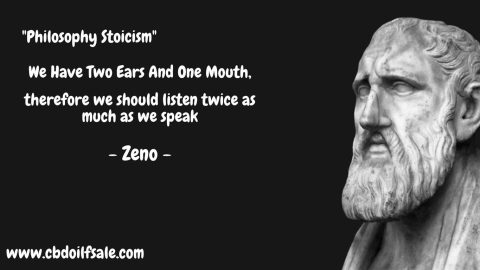
Introduction
The philosophies of the ancient world continue to shape our thinking and behavior even in this modern era. Among these, Stoicism, a school of Hellenistic philosophy founded in Athens by Zeno of Citium, stands as a prominent and practical approach to life. Stoicism, a philosophy that promotes detachment from the external world and focuses on internal resilience, provides practical guidance for attaining tranquility and composure in the face of life’s invariable adversities.
The Pillars of Stoicism
The Stoic philosophy is underpinned by four core principles: wisdom, courage, justice, and temperance. Wisdom encapsulates an understanding of life, nature, and the universe. It invites us to differentiate between what is within our control and what is not. Courage, in the Stoic sense, extends beyond physical bravery to encompass mental and moral courage. It’s about standing firm in the face of life’s challenges and maintaining integrity in our actions. Justice, to a Stoic, means treating others with fairness, understanding their viewpoints, and promoting communal well-being. Lastly, temperance advises moderation and balance in all aspects of life, highlighting the importance of self-control and discipline.
The Stoic Approach to Emotions
Stoics perceive emotions as products of our judgments and responses to external circumstances. They argue that our distress is not a result of the events themselves, but rather our perception of them.
Stoicism and Resilience
Resilience, the capacity to recover quickly from difficulties, is deeply embedded in philosophy. Stoicism equips its followers with mental tools to endure hardship, fortify the mind, and cultivate an unshakeable inner peace.additionally, By distinguishing between what is in our control and what is not, Stoicism promotes a mindset that fosters resilience and adaptability.
Applying Stoicism in Everyday Life
Incorporating Stoicism into daily life involves practicing acceptance, focusing on the present, and developing emotional resilience. Acceptance is about embracing life as it unfolds, rather than resisting or lamenting over uncontrollable events. By focusing on the present moment, we avoid unnecessary anxieties about the past or future, allowing us to fully engage with our current circumstances. Developing emotional resilience helps us respond to life’s challenges with tranquility and perseverance, rather than allowing external factors to disturb our peace of mind.
Conclusion
Stoicism offers an empowering perspective on life. By focusing on our inner selves and our responses to life’s challenges, it provides a roadmap to serenity and contentment.lastly, It equips us with the tools to navigate the ups and downs of life with grace and poise, promoting inner peace in a chaotic world. In an era rife with stress and uncertainty, the time-tested wisdom of Stoicism serves as a beacon of resilience and emotional fortitude.







